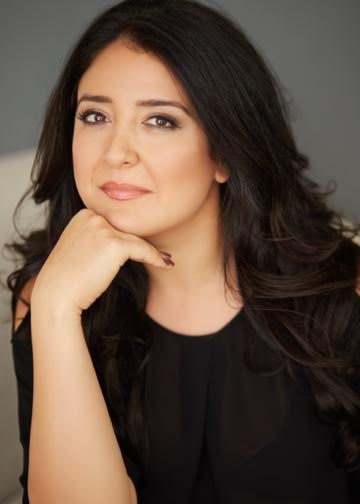At the close of a year, we often reflect upon the prior years’ experiences. This self-examination is a good opportunity to reflect on personal growth and areas of need. On a larger scale, it is also useful to reflect on the state of our culture.
When we look at specific events that have transformed society, we learn what is important to us. If we step back even further and examine the transformation of society over many decades or more, it can be a refreshing vantage point to predict where we might be going, and why.
We have come a long way, sociologically speaking.
Necessary Transition
Our culture has increasingly matured to value tolerance and celebration of diversity. More than ever, mainstream culture has grown into an enlightened understanding of cooperation and compassion.
On a sociological level, ethical living has become an important consideration for living a life based around one’s values. Beyond just “living a good life” a large facet of our culture is examining what it means to live a life that respects the resources of our planet, that helps our fellow human and creates a legacy of goodness and decency.
The Costs of Ethical Revolution
Change doesn’t happen easily. Unfortunately, terrible things tend to happen for society to wake up to the realization that something needs to change. When you look back across history, many of the major positive changes that have happened sociologically occurred after a lot of bloodshed, tears and oppression.
Often, it takes extreme hardship and suffering for our culture to reach a tipping-point; then, it is not only important for changes to occur, but necessary. Oppression against minority groups based on race, ethnicity, sexual preference, gender identity and economic issues have continued of course, but the awareness and discussion of these issues has become widespread.
Acts of violence and discrimination have devastated our culture yet have informed necessary policy changes and transitions in social norms.
It is not enough, but it is a work in progress. There will always be a need to advocate, fight and stand up for what is just and ethical. Our mainstream culture is moving in the right direction, but unfortunate setbacks such as bigotry and hatred in the offices of our elected government officials threatened those gains on a daily basis.
Embracing Tradition
Along with the increased focus on diversity, compassion and living ethically, mainstream culture reflects with nostalgia on traditions. We value traditions as they connect us to our past selves and help us define our lives as part of a larger tribe.
Nostalgia for tradition brings us a sense of belonging that is central to our humanity. People need connection with one another as individuals, and we long for the broader types of connection such as cultural heritage and the camaraderie that comes from a shared social history.
There is an important discrepancy between our evolution into a more enlightened culture and our nostalgia for tradition.
We live with a growing cultural value that rejects the disenfranchisement of others and simultaneously laments the loss of valued traditions. These are important factors to distinguish.
We are making the cultural statement, “everyone has value.” There is a message of “I want to know you” that this inclusionary culture offers. Along with these messages come the additional messages of valuing tradition; “I want to celebrate our differences and embrace our similarities.”
The nuances of these different messages are important, as our culture has not been as inclusionary, compassionate and open in the past.
Instead of rejecting all that is different, we are becoming more curious and willing to learn. We want to learn about the traditions of other cultures and subcultures. We want to embrace the individual traditions within our own families and enjoy the sense of belonging that they foster, while expanding our understanding of what others value and why. As a larger culture, we are drawn to nostalgia for tradition because we have reverence for what is familiar.
Individually, traditions often cause us to reflect on our own histories; the reflection of what has transpired over the years of this tradition in a lifespan. This is also what makes traditions, particularly holidays, a bittersweet time of year for reflection as we examine losses, transitions and the evolution of our own lives.
Ways to Embrace Diversity, Inclusion and Tradition
As we consider ways to continue our own growth toward cultural enlightenment, tolerance and embracing tradition, we can consider some simple ways to bring focus to these aspects of our individual lives.
Ask questions:
One of the most self-limiting things we can do is to hamper our curiosity in life. Learn about other cultures and groups that are different than your own. Ask questions about different ways of life and what is important to people who live within that culture.
We sometimes tend to avoid asking questions for fear of inadvertently being rude or seeming ignorant.
Most people want to share more about themselves with others who are genuinely interested. Asking questions about culture and beliefs is a terrific way to expand your own understanding and offers someone else the chance to share.
Talk about your traditions:
Openly talk about what you enjoy about your culture and traditions. Encourage others to share in the conversation and compare and contrast your traditions. You may mention a long-standing tradition that someone else might decide to embrace and had never thought about.
It may be that you learn from the traditions of others and adopt some of theirs for yourself, too.
Consider the ways your culture and traditions shape you:
What would life be like if you grew up in another culture? What is it about your own traditions that have shaped you and your life? We are so enmeshed in our own culture that we often forget how much it influences our development.
Consider who you would be without the influence of your particular culture and subculture. What might be different if you were in different surroundings? Involved in different cultural traditions and norms?
As our culture grows and expands to include a diverse population, consider your own contributions and the aspects of tradition that you value.


